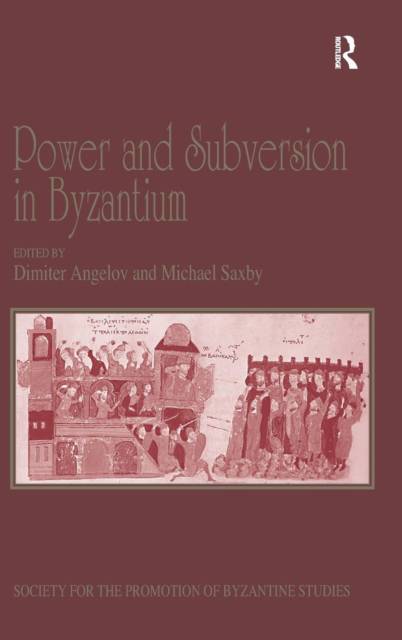
- Afhalen na 1 uur in een winkel met voorraad
- Gratis thuislevering in België vanaf € 30
- Ruim aanbod met 7 miljoen producten
- Afhalen na 1 uur in een winkel met voorraad
- Gratis thuislevering in België vanaf € 30
- Ruim aanbod met 7 miljoen producten
Zoeken
Power and Subversion in Byzantium
Papers from the 43rd Spring Symposium of Byzantine Studies, Birmingham, March 2010
€ 290,45
+ 580 punten
Omschrijving
This volume addresses a theme of special significance for Byzantine studies. Byzantium has traditionally been deemed a civilisation which deferred to authority and set special store by orthodoxy, canon and proper order. Since 1982 when the distinguished Russian Byzantinist Alexander Kazhdan wrote that 'the history of Byzantine intellectual opposition has yet to be written', scholars have increasingly highlighted cases of subversion of 'correct practice' and 'correct belief' in Byzantium. This innovative scholarly effort has produced important results, although it has been hampered by the lack of dialogue across the disciplines of Byzantine studies. The 43rd Spring Symposium of Byzantine Studies in 2010 drew together historians, art historians, and scholars of literature, religion and philosophy, who discussed shared and discipline-specific approaches to the theme of subversion. The present volume presents a selection of the papers delivered at the symposium enriched with specially commissioned contributions. Most papers deal with the period after the eleventh century, although early Byzantium is not ignored. Theoretical questions about the nature, articulation and limits of subversion are addressed within the frameworks of individual disciplines and in a larger context. The volume comes at a timely junction in the development of Byzantine studies, as interest in subversion and nonconformity in general has been rising steadily in the field.
Specificaties
Betrokkenen
- Uitgeverij:
Inhoud
- Aantal bladzijden:
- 316
- Taal:
- Engels
- Reeks:
Eigenschappen
- Productcode (EAN):
- 9781472412287
- Verschijningsdatum:
- 2/10/2013
- Uitvoering:
- Hardcover
- Formaat:
- Genaaid
- Afmetingen:
- 156 mm x 234 mm
- Gewicht:
- 625 g

Alleen bij Standaard Boekhandel
+ 580 punten op je klantenkaart van Standaard Boekhandel
Beoordelingen
We publiceren alleen reviews die voldoen aan de voorwaarden voor reviews. Bekijk onze voorwaarden voor reviews.










